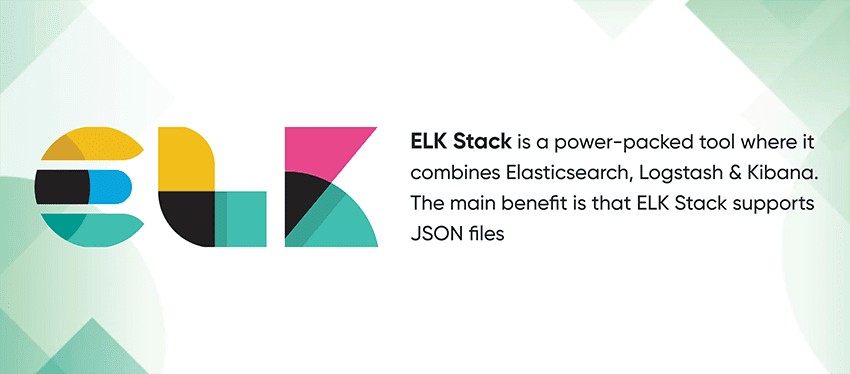Generally, DevOps as a Service is a unification of practices and standard tools. It aids to enhance the capability of firms to release IT services & apps. The overall process of DevOps is faster than that of the conventional development process. By using DevOps, industrial units can enhance the products, and serve clients with better feedback. At the same time, DevOps can also achieve its target in a shorter period. It aids in eradicating blocks in the conventional development process and reduces SDLC. The programming team & operation team can cooperate and work together from the development stage to production. The usage of trends & techniques in DevOps is one of the vital aspects. Multiple tools influence application infrastructure. These tools are available for different phases like configuration, testing, automation, delivery of projects, etc. In this technological world, most techies are using DevOps tools to deliver products quickly and satisfy clients’ business goals. DevOps tools aids to increase business activities and also provides well-defined integration among multiple teams. A recent report exclaims that about sixty-three percent of the firms are executing DevOps-enabled deployment and deliver the best products frequently.
An array of prominent DevOps Tools

Day by day both software and infrastructure are getting complicated. For backup purposes, we are using the web, application server, and database. To process an enormous amount of data and for incorporating automated testing & deployment multiple databases & data stores are available. But still, we need tools for the execution of present-generation platforms. Here, at this point, Devops tools arose.
Lists of prominent DevOps automation tools are explained in detail in the upcoming points.
Jenkins

Jenkins is an open-source tool that helps in the automation of multiple processes like implementation, enabling CI/CD, deployment, and testing. By using this tool, teams can continuously monitor tasks, integrate changes, spot out & solve issues instantly. This exclusive tool supports more than a hundred plugins. These plugins can easily integrate with Git, Maven, Amazon EC2, etc. Java programming language supports Jenkins that typically works across different platforms like Linux, UNIX, and Windows & Mac OS. The techies can easily configure Jenkins along with the web interface. An added advantage of Jenkins is that it can perform extensible functionalities. On the other side of the flip, this tool can be used as CI/CD tool for software projects. To build, test and deploy a product, Jenkins will be the best tool.
Docker

This tool was released in 2013 and used by more than eleven million developers globally. Docker helps DevOps consultants to implement and deploy code through containers. Instead of using a VM, usage of containers is the best option. It eradicates configuration activities and provides seamless team collaboration. This tool assures a well-defined software development environment from the initial stage to the final. The techies can build Docker images and execute them in the typical environment which includes development, testing, and deployment. This tool can execute on different platforms like Windows, macOS & Linux. Famous enterprises like Netflix, Adobe, and PayPal are using the Docker tool.
Puppet

It is an open-source tool specially designed for software configuration management. Puppet is a specialized and automation tool that aids to regulate different life cycles that include the configuration of components, IT infrastructure, and Operating systems across data servers. Puppet is compatible with C++, Ruby & apt OS are Linux, Windows, and Linux. Here, the declarative language defines its configuration. It offers multiple benefits like node management and well-defined access control.
Apache Maven

It is a standard automation tool, which plays a vital role in the units of project management. Apache Maven helps to regulate the process of build and documentation. This typical tool is used in the development of Java-enabled projects. It supports a list of the programming language of Ruby, C#, and Scala. Maven predefined coding compilation & packaging. It possesses Apache License 2.0 and downloads multiple plugins. It is raised with automated updates and dependent closures.
Gradle

Gradle, an important DevOps consulting tool enhances overall software development. It is also one of the vital open source tools. It supports multi-language like Java, Kotlin, and built automation. Gradle automates different phases like on-demand app development, testing, and deployment. It possesses a massive ecosystem of plugins that aid to build and integrate software delivery. Gradle supports Apache License 2.0 and Kotlin language. Scaling of the built and development process is feasible. Most start-up firms and medium-level organizations use Gradle. Here, acyclic graphs execute dependent management. Lists of automated tools are Graphite, Gulp, and Digital.ai.
CircleCI

Whatever may be the Team size, this tool offers 100% reliability for the overall software development. It is easier to build and deploy software in the cloud system. The leading brands like Ford, Samsung & Spotify support this typical tool. CircleCI automates the CI/CD pipeline in the base of the VM. In case, if there is any pipeline failure, instant notifications will be sent to the team. Slack supports these types of notifications. Integration of GitHub & Bitbucket is possible to initiate pipelines. It executes on different operating systems like Windows, and Linux.
Bamboo

The bamboo tool supports continuous integration, deployment & delivery of software. One can easily integrate with building and testing as a unit workflow. Bamboo aids to develop plans and allocating agents for the deployment process. This standard tool is available at an affordable cost. It is an open-source software tool and commercial firms can procure it free of cost.
TeamCity

It is a continuous mobile app development tool that offers 100% flexibility for the workflow process. In this era, most developers and techies prefer the TeamCity tool. One can build, deploy and test different apps on different multi-platforms. This tool supports Java programming language and is available free of cost. It possesses about a hundred configurations and raises with three build agents. Multiple plugins are available and support multiple languages like Java, .Net, and Ruby. This tool rapidly resolves crucial issues.
Travis CI

Travis CI is an efficient tool where it builds and tests different apps on GitHub. It supports the programming language of Ruby, automates deployments & possesses an MIT license. This tool offers 100% scaling capacity and arises with build statistics & parallel testing. It supports multiple operating systems like Mac, iOS & Linux.
Splunk

This tool can easily access data and most techies prefer the Splunk tool. Splunk delivers operational intelligence data to different teams. It is one of the well-defined tools that aid firms to attain 100% productivity. Splunk platform enhances robust solutions for security purposes.
Sensu

Sensu is an exclusive open-source tool where it monitors different cloud environments. The deployment process is possible through deployment tools like Puppet and Chef. It supports 100% integration and scalability. The collaboration process depends on the different workflows.
Nagios

Nagios tool monitors host resources and regulates alarm, temperature, etc. It supports multiple protocols like HTTP, FTP, SMTP, SNMP, etc. This tool is available in Log Server, Core, etc.
SoapUI

Soap UI tool offers a user-friendly graphical interface and supports REST, JMS, etc. It provides Application Programming Interface mocking of software. Lists of testing tools are Basis, Sentry, Watir, etc.
TestSigma

TestSigma is a cloud-based DevOps tool where it enables a well-defined Application Programming Interface for mobile apps. It performs rapid execution and offers different testing like web app testing, regression testing, cross-browser testing, etc.
Selenium

Selenium is an open-source Android app development tool where it automates different admin tasks. It supports multiple programming languages like Java, PHP, Python, etc. Selenium is the most ideal tool for the DevOps process.
Prometheus

Prometheus possesses Apache License and offers multiple cross-platforms. The DevOps team can easily analyze data and support data visualization like tables, graphs, etc. It stores data on the local disks and the scaling is feasible with the federation.
New Relic

New Relic tool analyses troubleshooting process and enhances software stack. By using this tool, one can easily fix the issues and regulate the tasks. It is one of the vital resourceful DevOps tools.
PagerDuty

PagerDuty is an efficient tool that is easier to use. It completely analyses the digital signals and offers task scheduling. This tool supports nearly four hundred integrations along with the other prominent tools like Slack, AWS, New Relic, etc.
Terraform

Terraform executes on different operating systems like Windows, Linux, Solaris, etc. Here, automation of resource provisioning is feasible and eradicates manual issues. It possesses the Mozilla Public License.
Consul

Consul tool enhances its functionality factor with Kubernetes and offers 100% load balancing. It provides secure connections and automates network configuration across the cloud environment.
Ansible

It is one of the prominent DevOps tools where it simplifies the development process. Ansible eradicates tasks and it is the best tool for operational teams. It executes on different operating systems like Windows, UNIX, Linux, etc. Ansible tool is the best alternative for Puppet.
Liquibase

It is an open-source tool where it manages overall schema changes. Here the changes are stored in multiple formats like SQL, JSON, YAML, etc. Initially, this standard tool initiates a list of various changes. Liquibase checks database updates frequently.
Git

Git is an open-source tool that is specially designed for Source Code Management and iOS app development. Its main function is to track software management and enhance data integrity for distributed workflow. Git possesses version tracking capability and GPL license. This tool works on different operating systems like Windows, Linux, AIX, etc. It can handle small projects to larger ones.
GitHub

GitHub supports multiple languages like Ruby, C & ECMA, etc. still, now it possesses nearly sixty million users. This tool offers SCM and offers different features & functionalities. It is available for different OS like Windows, Linux & macOS. One can easily share different packages with the aid of GitHub packages.
ELK Stack

It is a power-packed tool where it combines Elasticsearch, Logstash & Kibana. The main benefit is that ELK Stack supports JSON files. It possesses more than two hundred plugins & pre-built filters, interactive filters, and data visualization.
Summing up
This article provides complete details about DevOps which includes lifecycle, monitoring, version controls, configuration management, etc. It optimize app performance. Starting from the small mediums to larger ones use DevOps tools for the development of their business.











